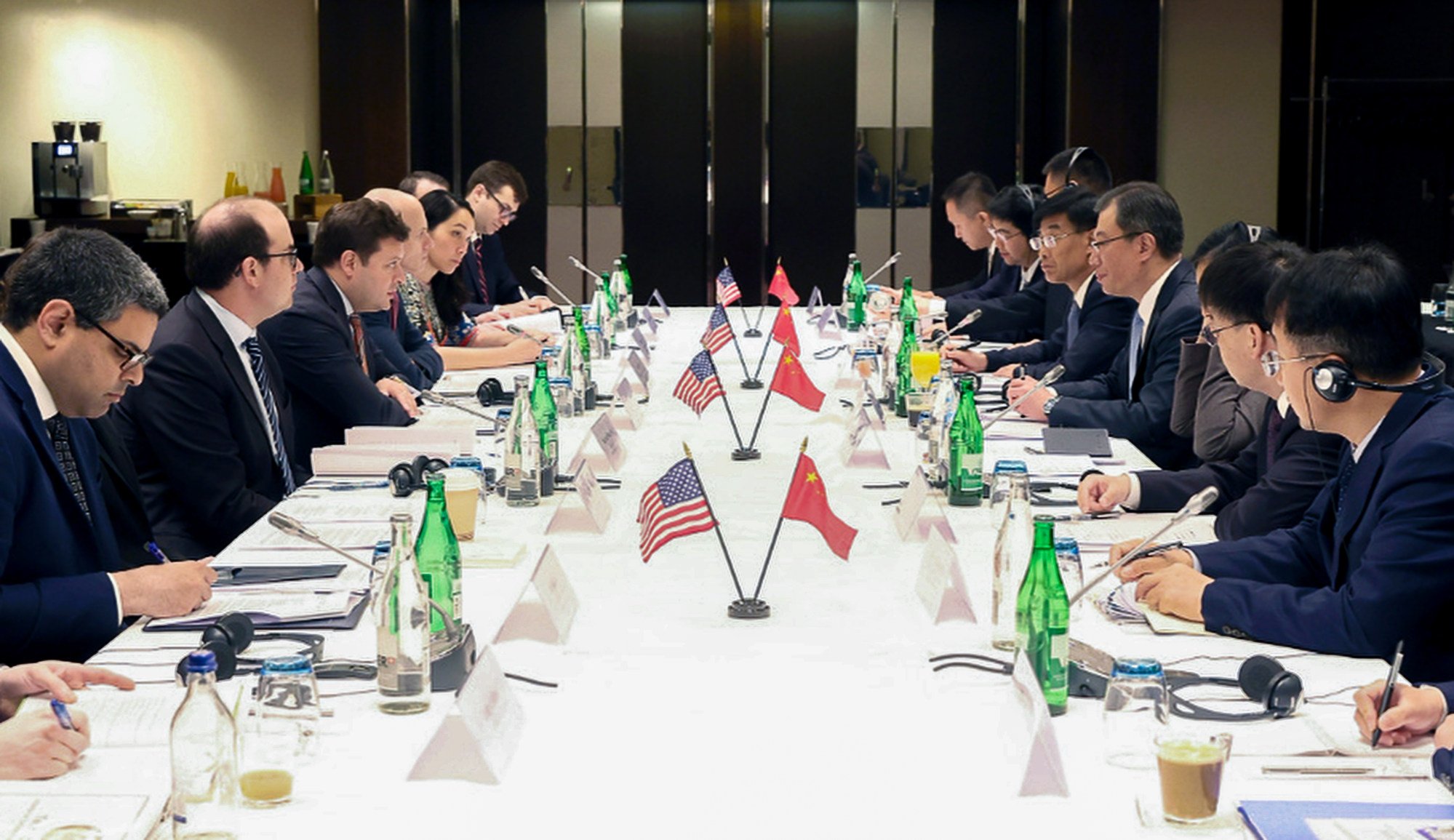
China-US artificial intelligence talks ‘deep, professional and constructive’
- At a meeting in Geneva on Tuesday, officials from both countries affirm commitment to reduce AI risks and improve world governance
- The discussions are intended to implement the consensus reached by Xi Jinping and Joe Biden in November
The Chinese delegation was led by Yang Tao, director general of the ministry’s North American and Oceanian affairs department, and included officials from the science and technology ministry, the National Development and Reform Commission and other government agencies.
Tarun Chhabra, special assistant to the president and senior director for technology and national security at the National Security Council, and Seth Center, the State Department’s acting special envoy for critical and emerging technology, led the US side, with Commerce Department officials also present.
Both sides introduced their views on AI technology risks and governance initiatives as well as measures taken to promote AI-enabled economic and social development, according to the readout.
According to National Security Council spokesperson Adrienne Watson, the US stressed the importance of harnessing the benefits of AI for sustainable development, in both developing and developed countries.
Washington also emphasised the need to build global consensus to ensure that AI systems are “safe, secure and trustworthy” in order to realise their benefits, Watson said.
In “candid and constructive” talks, Watson said in a statement, the US additionally raised concerns over the misuse of AI, including by China, and affirmed the need to maintain open lines of communication on AI risk and safety as part of “responsibly managing competition”.
Yang said China had always stuck to the principle that AI technology should be people-centred and used for good to ensure that AI technology was beneficial, safe and fair. He also expressed Beijing’s willingness for more communication with Washington over AI governance.
“China supports strengthening the global governance of AI and advocates for the United Nations to play the role of main channel,” Yang said.
“[China] is willing to strengthen communication and coordination with the international community, including the US, in order to form a global AI governance framework and standards and norms with broad consensus.”

The readout said that during the meeting the Chinese also made clear its “solemn position” on US restrictions and suppression of China in the field of artificial intelligence.
The two powers are seeking to mend ties and deepen engagement over a range of issues, but expectations were low for any concrete achievements from the talks, intended to implement an agreement struck by Xi and Biden at their November meeting.
In a background briefing before the talks, a US official said the meeting would not focus on “promoting any form of technical collaboration or cooperating on frontier research in any matter”.
“[Beijing] is rapidly deploying capabilities across civilian as well as military, national security sectors, and in many cases in ways that we believe undermines both US and allied national security,” he said.




